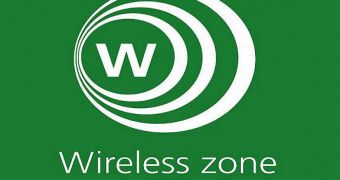The latest analysis of the IT market shows that the following years will bring a 'dramatic' increase in consumer 802.11n Wi-Fi access point shipments. By 2013, they are expected to reach 88 million units, compared to six million units that are shipped today.
According to analysis firm ABI Research, the next years will make the emerging 802.11n wireless networking standard become the default Wi-Fi technology.
"The real market growth will kick in when sufficient numbers of consumers have 802.11n capabilities embedded in their new laptop and desktop computers," said Stan Schatt, ABI Research vice president. "We anticipate the greatest adoption to take place in the 2009-2010 time frame," he added.
Schatt also said that the future would bring the same pattern to the enterprise market because companies will replace their laptops in time, acquiring machines that feature the 802.11n standard. "You can achieve 802.11n connectivity with adapter cards. (?) But most IT managers don't like them because they can get lost or damaged."
Today's pattern shows that most enterprises replace their laptops in a three-year cycle. Even so, ABI expects the replacement with new mobile PCs to take a little longer under the influence of the current economic climate. "Some larger organizations remain initially wary because 'n' is still a draft with ratification of the final standard expected next year," Schatt explained.
"But companies with workgroups that need 802.11n's extra speed, range and robustness may push ahead in a piecemeal fashion," he added. According to ABI, by the end of 2013, about 16 percent of the total market will be represented by enterprise component of 802.11n equipment sales.
Schatt also stated that many vendors see today's fast adoption of 802.11n in the enterprise segment as "pleasantly surprising". He believes that the adoption is due to the fact that the Wi-Fi Alliance's interoperability testing certification provides reassurance for customers.

 14 DAY TRIAL //
14 DAY TRIAL //